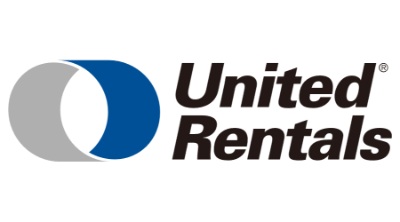Many investment firms and investors are out to make as much money as possible. They don’t care who they’re supporting. People interested in biblically responsible investing want to make money to serve God better and back companies that share their beliefs.
Instead of investing in companies that perform well on the stock market, it’s important to research the big names and make sure they represent your values. Investors now have much more information to help them determine if a corporation behaves in a Christian way.
This article will explain BRI investing, biblical investing principles, how and where to buy BRI stocks, and list some of the best biblically responsible companies in the marketplace.
Table of Contents
- Best Biblically Responsible Stocks
- 1. Best Biblically Responsible Stock for Big Gains: Tesla
- 2. Best Biblically Responsible Stock for Quick Turnaround: AutoZone
- 3. Best Biblically Responsible Stock for the Long-Term: Garmin
- 4. Best Biblically Responsible Stock for Human Welfare: Dollar General
- 5. Best Biblically Responsible Stock for Evangelism: Tyson
- 6. Best Biblically Responsible Stock for Reliability: United Rentals
- 7. Best Biblically Responsible Stock for Supply Issues: Old Dominion Freight Line
- 8. Best Biblically Responsible Stock for Making a Change: Kohl’s
- 9. Best Biblically Responsible Stock for Greatest Scope: Simon
- 10. Best Biblically Responsible Stock for Financial Gain: Walmart
- How to Buy Biblically Responsible Stocks
- What are Biblically Responsible Stocks?
- Difference Between Biblically Responsible Investing and Faith-Based Investing
- Where to Buy Biblically Responsible Stocks
- FAQs
- What are the biblically responsible investing (BRI) standards?
- What are the best Christian stocks?
- What is the biblical ethics of investing?
Best Biblically Responsible Stocks

To compile this list of the best biblically responsible stocks, we researched some of the best-performing stocks on the market and screened them according to the abovementioned criteria. A company with LGBT employee policies could make it through. But if it donates money to those causes, it gets eliminated.
Once we had a shortlist of biblically responsible stocks, we researched more. We wanted to know the company’s growth potential, competitive advantages, and human capital. A biblically responsible company that doesn’t advance isn’t worth the investment, so we covered all the bases.
What we’re left with is the list you see below. These companies back religious values and are biblically responsible. Because they represent what you believe in, you can invest and stick with them for the long term.
This list of biblically responsible stocks explains why you should choose the stock reviewed. It also includes the pros and cons of investing in biblically responsible stocks.
1. Best Biblically Responsible Stock for Big Gains: Tesla

Tesla is a fast-growing company that isn’t shy about testing other markets. The company is working to build electric cars. With the government working to ensure 50% of the cars on the road are electric, this is a great time to invest in the cause.
Though Tesla is an expensive stock, it will pay off over time. In addition to getting in on the ground floor of producing electric cars, the company embraces these environmental issues completely. It is careful with its energy consumption and emissions.
The company is also on the cutting edge of robotics and artificial intelligence. Elon Musk has worked on building a self-driving car and even dreams of making flying cars by 2050. If you can invest in something long-term, Tesla is sure to be worth the money.
One downside to Tesla is that the company supports the LGBT Equality Act. This means the company can’t discriminate against LGBT employees regarding hiring and firing. Though Tesla signed on to support this bill, there is no proof that they donate to LGBT causes.
Pros
- Environmentally friendly in terms of energy, emissions, and hazardous waste
- Poised to advance the artificial intelligence market
- Well-performing, constantly growing stock
Cons
- Supports the LGBT Equality Act for employees
- Expensive stock to buy into
See Related: Ethical Dividend Stocks to Invest in Today
2. Best Biblically Responsible Stock for Quick Turnaround: AutoZone

AutoZone stock is highly rated because you can invest in it in the short or long term and still make money. While you want to buy some stocks and stick with them as they grow, AutoZone can pay them off immediately.
Inspire Insight, a company that searches controversial legislation for company involvement, couldn’t find anything against AutoZone. They haven’t signed LGBT agreements, donated to abortion rights, or backed weapons manufacturers.
Though AutoZone is a reliable company to invest in, sometimes the stock prices are high. That initial cost can keep people from getting involved.
It’s worth watching this stock and buying when the prices are low. There are also some risks with investment since buying and selling your shares is easy. The company frequently approves buybacks, so the value fluctuates. With electric cars becoming more common, as mentioned above, with Tesla stock, AutoZone might face declining sales over the long term.
Pros
- Pays out whether you sell immediately or hang onto the stock
- No proof of investing in controversial manufacturers
- Doesn’t publicly support LGBT rights
Cons
- Expensive stock to buy into due to its growth
- Risk factors may decrease its value
See Related: Best ESG Target Date Funds
3. Best Biblically Responsible Stock for the Long-Term: Garmin

Garmin is a tech company with a solid reputation, so Christian investors should be happy that it’s a biblically responsible stock for investment.
You can safely invest in Garmin because there are no public records of them approving or backing any sinful industries. According to Inspire Insight, the company doesn’t have a known employee policy regarding LGBT or healthcare for abortions.
Other positive aspects of investing in Garmin include their rank as best in class in controlling their greenhouse gas emissions. They also have impressive rankings in energy management and materials sourcing.
It’s nice to know that a prominent company like Garmin promotes the environment and a biblical way of living. Since this stock isn’t guaranteed to have a quick influx on the market, it’s one you want to invest in and keep for the long term.
Pros
- Very affordable price, so you get more for your investment
- No recorded accounts of supporting sinful legislation or companies
- Ranked best in class in many environmental categories
Cons
- Can’t pay out quickly, so you have to hold onto it
- Doesn’t have as much earning potential as others on the list
See Related: How to Invest in Stocks: A Comprehensive Guide for 2023
4. Best Biblically Responsible Stock for Human Welfare: Dollar General

Several companies earned their spot on this list because they’re environmentally conscious. Dollar General has all that and more. They rank as best in class for categories like Employee Health and Safety and Customer Welfare.
These rankings show you that Dollar General is a company that values people. If you want to back a company that supports both the working class as well as the customers, this is the stock for you.
It’s a stable stock because so many people shop at Dollar General. It doesn’t have a high projected growth rate, but it’s a solid investment.
Pros
- Ranks best in class for many environmental and social categories
- Stable stock to invest in now and have money for retirement
- Important in the supply chain and as an employer
Cons
- Doesn’t have a huge projected growth
- Retail stocks can be risky due to the overall economy
See Related: Tips for Buying a Used Tesla
5. Best Biblically Responsible Stock for Evangelism: Tyson

Tyson isn’t just the world’s largest chicken producer – the company is well-known for its evangelism. Tyson employs chaplains to minister to employees who work in production and offices. Having chaplains on staff makes Tyson a wholesome workplace because you’re never too far from the word of God when you need it.
The company doesn’t keep the gospel behind closed doors. They donated money to the University of Arkansas to fund a religious center. The center focuses on global businesses and is sensitive to the diverse religions employees might practice.
The Tyson Center for Faith and Spirituality in the Workplace is part of the Sam M. Walton College of Business. Since Tyson incorporates religion into its work environment, it is helping other leaders learn how to do the same.
With such a well-known company with strong morals, you can confidently invest in this stock. Tyson has been a big name in the food industry for years, and that won’t change anytime soon.
Pros
- Embody biblical teachings by employing chaplains as staff
- Spread the word by founding a religious center at a local university
- Well-known manufacturer in the food industry
Cons
- Publicly support LGBT employees having equal rights
See Related: Best States for Real Estate Investing
6. Best Biblically Responsible Stock for Reliability: United Rentals

United Rentals is a company that rents tools and machinery to workers and construction sites. Since this type of equipment is expensive, many people rent it instead. Therefore, you know that United Rentals is a reliable investment.
While construction wasn’t booming during the pandemic, it’s a field that always ebbs and flows. After the economy struggles, it’s only natural that construction will build back up into a healthy market. Shops, schools, and residential areas are popping up around the country. Even once they’re built, these places need maintenance these machines can help with.
However, United Rentals isn’t a surefire investment in any field that depends on the population and the economy. If construction drops off, you’ll lose money. Or if it grows but companies buy equipment, United Rentals will fold. So, there are some risks involved with this stock.
Pros
- No known affiliations with sinful manufacturers or backing offensive legislation
- Provides a necessary service, making it reliable
- Rated best in class in many environmental and social categories
Cons
- Subject to increases and decreases due to the state of the economy
See Related: Best Green Companies
7. Best Biblically Responsible Stock for Supply Issues: Old Dominion Freight Line

While the previously mentioned United Rentals hasn’t had a solid increase during the pandemic, Old Dominion Freight Line has seen the opposite. With supply issues, the transportation company has flourished.
Trucks are dependable, but they take much longer than planes. In the present day, consumers want their goods immediately. However, due to supply issues with food and raw materials, retailers can’t deliver at that speed.
Old Dominion Freight Line started in 1934, so the company understands its need and relevance. When it wasn’t impossible to ship things immediately, retailers turned to Old Dominion Freight Line to send goods at a much lower price nationwide.
A lower retailer cost meant Old Dominion’s business was booming, so it’s a good stock. After seeing this economic change, there’s no need to invest in Old Dominion for a short time. There’s no telling how the repercussions of the pandemic will play out, so investing in Old Dominion is a wise choice to make – and stock to hold on to.
Pros
- Established company with reliable business
- Has no public proof of backing LGBT or abortion legislation
- Trucks are always needed for deliveries
Cons
- Some risk of investment due to the state of the economy
8. Best Biblically Responsible Stock for Making a Change: Kohl’s

Kohl’s is a popular clothing retailer for men, women, and children. The stores also sell home goods and toys, making it a one-stop shop. Kohl’s has always been family-focused.
They’re also Christian in their service, supporting charities that benefit women and children. Along with person-centered charitable work, Kohl’s ranks best in class in many environmental categories. The business sources materials ethically to control greenhouse gas emissions.
Though Kohl’s used to donate to Planned Parenthood, they stopped in 2011. This change was in direct response to customer outrage. In a world where corporations are money-hungry, it’s good to know that some keep their pro-family values and listen to customers.
While Kohl’s has stopped donating to Planned Parenthood and claims to support the traditional family, they don’t practice everything they preach. There are four instances in which Kohl’s backing of LGBT policies and agendas has occurred.
Kohl’s is a corporate partner of the National Gay and Lesbian Chamber of Commerce (NGLCC). Its mission is to advocate for minority business owners, which is a noble goal, but it focuses on the LGBT community.
The retailer also promotes the LGBT lifestyle in stores, donating proceeds to the Trevor Project, an LGBT organization. It also supports military families, so it’s hard to rate Kohl as all good or all bad with its array of donations.
Kohl’s is a major retailer, so investing in its stock is a good decision. They listen to customers and stakeholders, so there’s a lot to appreciate. However, before you invest, you might want to take a closer look at the actual numbers of their donations.
Pros
- Stopped donating to Planned Parenthood in 2011
- Support traditional families and the United States Military
- Reliable retailer with high profits
Cons
- Supports LGBT lifestyle and donates profits to related foundations
- Is a corporate partner for a major LGBT organization
9. Best Biblically Responsible Stock for Greatest Scope: Simon

Simon Property Group owns shopping malls across the United States. They also own many brands with storefronts in the malls, whether it’s retail shops, entertainment outlets, or restaurants.
Since the company has such a broad range, it’s a good stock for investment. Even if one retail store goes under, Simon still owns many others. Though malls aren’t as popular these days, countless stores and restaurants only have a presence in malls. Therefore, they’ll always bring in traffic and make this stock a good buy.
Simon owns Forever 21, which might not seem like a religious store since the clothing sold isn’t modest. But if you check near the bottom of the store’s bags, you’ll see John 3:16 printed to share the store owners’ faith.
Pros
- Owns many stores, brands, and restaurants
- It is always expanding its scope to make the most profit
Cons
- Owns stores like Forever 21, which don’t exclusively sell modest clothing
See Related: Best EV Charging Station Stocks
10. Best Biblically Responsible Stock for Financial Gain: Walmart

Walmart is one company that divides religious investors. It’s rooted in Christianity because founder Sam Walton was an active church-goer. He started the store based on the church hours of his town in Arkansas.
The company gets a lot of flack for its employment practices, such as not giving full-time status to workers so Walmart doesn’t have to pay for insurance. However, the retailer has a reputation for being a pro-family Christian entity. It sells more Christian books than smaller Christian bookstores, so there’s some truth to that perception.
However, the company has strayed from those fundamental Christian values recently. Walmart is a $75,000 Platinum sponsor of PFLAG, an LGBT organization. The roots of PFLAG’s mission are in direct opposition to Christian beliefs.
In addition to 15 other recorded instances of donating money to LGBT organizations, Walmart donated anywhere from $5,000 to $49,999 to the Center of American Progress (CAP). CAP supports not only LGBT legislation but also abortions.
There’s no way to know Walmart’s intentions behind its donations to CAP. With its direct sponsorship of PFLAG, it’s possible that Walmart only wanted to support the LGBT side of CAP’s mission. However, since the money could go toward overturning abortion legislation, there’s no definite way to know.
In the case of investing in Walmart, you’ll have to check in with your religious side. If you want to believe in the best of the company, remember that it grew from Christian roots, values family, and still sells Christian books and educational materials. But it’s your money, so you might not want a penny for PFLAG and CAP.
Pros
- Massive company that always has high profits
- Very well-known and stable
- Founded on Christian and pro-family principals
Cons
- Supports LGBT legislation and donates to PFLAG
- Donates to an organization that supports abortion
How to Buy Biblically Responsible Stocks

For example, the Biblically Responsible Investing Institute (BRII) has eliminated much of the guesswork. For the past 15-plus years, it has studied each company in Standard & Poor’s 500-corporation index (S&P 500).
BRII operates as a non-biased third-party organization and does not tell investors which stocks to buy. It simply provides the research information so investors can make their own decisions.
Using this resource will help you understand biblical investing principles. You can also find biblically responsible ETFs. An ETF is an exchange-traded fund that you can buy and sell through the stock market, just like the individual stocks listed above.
But an ETF groups together many stocks, so you’ll invest in several companies simultaneously. You might also have access to commodities and bonds since ETFs can have a variety of investments.
See Related: How to Buy Stocks Without a Broker
What are Biblically Responsible Stocks?

In the most basic sense, biblically responsible stocks represent publicly traded companies that follow the Bible’s broad and specific principles of behavior. They allow people to exercise wisdom in ways that honor the God of the Bible without breaking His commandments.
Investing in the stock market means you’re not only trying to make money. You’re taking part ownership of a company, so you don’t want to support something with opposing views.
Investing in these stocks doesn’t mean you’re placing your values over the potential to make a quality investment. Biblically responsible investing has grown over the past few years.
Timothy Plan, a company that owns many faith-based mutual funds, has doubled and opened new funds. In real terms, this means BRI investors are shying away from companies that do any of the following:
- Disburse contraceptives
- Perform elective abortions
- Distribute or manufacture alcohol
- Produce violent or sexual entertainment, especially pornography
- Engage in stem-cell research
- Operate casino or internet gaming
- Provide arms to or conduct business with known terrorist organizations or oppressive regimes (especially those that avow hatred toward Israel)
- Take advantage of low-income individuals or families
- Manufacture and distribute marijuana or other hallucinogens
- Promote homosexual and alternative lifestyles
Very few, if any, companies abstain from all these corporate behaviors. However, companies engage in them to varying degrees, so it is up to the individual investor to decide their comfort level with any corporation’s business practices.
See Related: How to Start Investing With a Purpose
Difference Between Biblically Responsible Investing and Faith-Based Investing

Biblically Responsible Investing (BRI) and Faith-Based Investing (FBI) are investment strategies guided by religious principles but differ in focus and scope. BRI refers explicitly to an investing approach grounded in Christian biblical principles, where investments are made in companies that align with the Bible’s moral teachings. It actively avoids companies that engage in practices contrary to these principles.
On the other hand, Faith-Based Investing is a broader term encompassing investment strategies rooted in various religious beliefs, not limited to Christianity. It involves aligning investment decisions with the ethical and moral standards dictated by a person’s specific faith or religious belief, such as Judaism, Islam, Buddhism, Hinduism, Christianity, or any other faith. This might include considerations such as social justice, environmental stewardship, and ethical business practices.
Where to Buy Biblically Responsible Stocks

Now that you know the best BRI stocks, you must know where to buy them. You can purchase through a brokerage firm, online or mobile application, or a qualified personal investment advisor. In terms of brokerage options, you can invest with Robinhood or Empower (Formerly Personal Capital).
We suggest that if you decide to use a personal investment advisor, you should find one who understands your desired investment strategy and shares your commitment to biblical principles.
Ensure your financial advisor knows you want your money to change the world positively. Investing in biblically responsible stocks shows everyone what you believe in and proactively makes a difference. You’re leading by example when partnering with companies that put their values first.
Some well-known firms in the BRI investment space include CFD Investments, Eventide Funds, G.A. Repple, and Christian Wealth Management, most of which provide mutual funds as investment products. Find the investment firm that can best help you meet your financial goals.
FAQs

What are the biblically responsible investing (BRI) standards?
Biblically Responsible Investing (BRI) is an investing approach that aims to align Christian investors’ financial activities with the moral standards of the Bible. This growing movement among Christian investors and investment firms seeks to ensure that investments are made in a way that is consistent with biblical values and principles.
By excluding, engaging in, and endorsing activities, BRI products help Christian investors maintain their integrity and responsibility to biblical stewardship while actively investing in the stock market.
What are the best Christian stocks?
Christian stocks are shares in companies that align with Christian values and ethics. These companies typically prioritize aspects such as integrity, honesty, and respect for humanity and the environment, reflecting the teachings of the Bible. The best Christian stocks often belong to firms that actively avoid involvement in industries deemed unethical or incompatible with Christian teachings, such as alcohol, tobacco, gambling, and defense industries.
What is the biblical ethics of investing?
Biblical investing ethics involve investing money according to principles and guidelines established in the Bible. This ethical approach encourages investments in businesses that uphold moral integrity, promote social justice, and respect the environment, reflecting core Christian values such as love, honesty, and charity.
The biblical ethics of investing discourages support for companies involved in activities contrary to these values, such as exploitative labor practices, environmental harm, or the production of harmful products like tobacco and alcohol.
Related Resources
- Why Responsible Investing is Important
- Important Socially Responsible Investing Pros and Cons
- Best Environmental Stocks to Invest in Today
Kyle Kroeger, esteemed Purdue University alum and accomplished finance professional, brings a decade of invaluable experience from diverse finance roles in both small and large firms. An astute investor himself, Kyle adeptly navigates the spheres of corporate and client-side finance, always guiding with a principal investor’s sharp acumen.
Hailing from a lineage of industrious Midwestern entrepreneurs and creatives, his business instincts are deeply ingrained. This background fuels his entrepreneurial spirit and underpins his commitment to responsible investment. As the Founder and Owner of The Impact Investor, Kyle fervently advocates for increased awareness of ethically invested funds, empowering individuals to make judicious investment decisions.
Striving to marry financial prudence with positive societal impact, Kyle imparts practical strategies for saving and investing, underlined by a robust ethos of conscientious capitalism. His ambition transcends personal gain, aiming instead to spark transformative global change through the power of responsible investment.
When not immersed in finance, he’s continually captivated by the cultural richness of new cities, relishing the opportunity to learn from diverse societies. This passion for travel is eloquently documented on his site, ViaTravelers.com, where you can delve into his unique experiences via his author profile. Read more about Kyle’s portfolio of projects.
